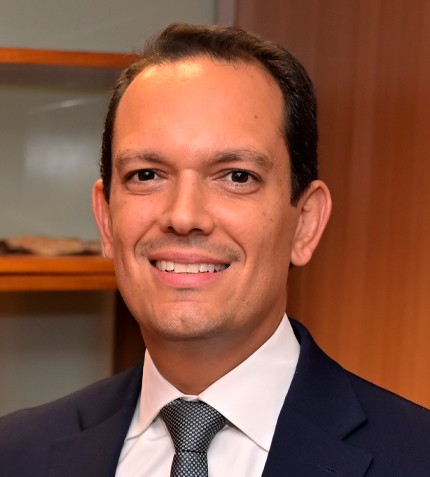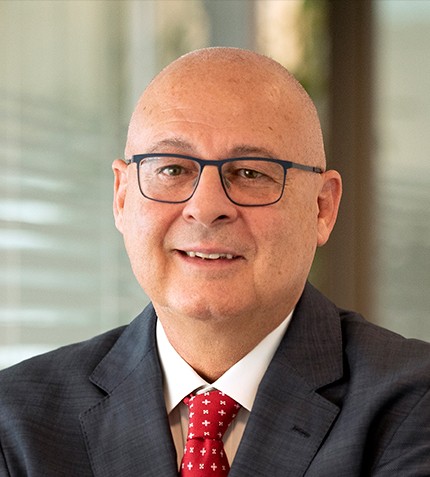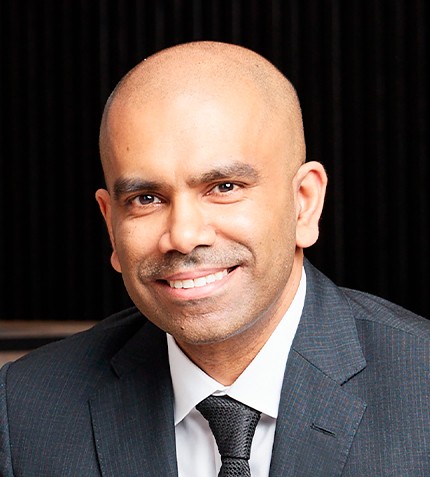
"The goal is to discover new deposits and increase production, particularly for minerals utilized in the energy transition and input minerals for food security."
Vitor Saback
NATIONAL SECRETARY OF GEOLOGY, MINING, AND MINERAL TRANSFORMATION, MINISTRY OF MINES AND ENERGY (MME)
What is the importance of mining for the Brazilian economy?
The Ministry of Mines and Energy (MME) sees the mineral sector, together with the agricultural and industrial sectors, as fundamental to boosting the Brazilian economy. Brazil is world’s largest producer of niobium and the second largest producer of iron ore, magnesite, tantalum and natural graphite. It is also the fourth largest global producer of bauxite and vanadium and ranks fifth for lithium and tin.
Tax collection, including the Financial Compensation for Mineral Exploration (CFEM), totaled R$7.1 billion in 2022 and R$3.41 billion in the first half of 2023. Revenue in the mineral sector for 2022 was R$250 billion, and in the first half of 2023, R$120 billion. The MME does not support increasing taxation and is against taxing exports.
How is the government encouraging the production of critical minerals?
The global energy transition will be advantageous for Brazil due to Brazil’s critical resources and the large volumes of minerals required for the transition to a low-carbon economy. The MME has worked to attract public and private investment and financing for mineral research in coordination and collaboration with private entities operating in the sector. The goal is to discover new deposits and increase production, particularly for minerals utilized in the energy transition and input minerals for food security.
We have taken several steps to achieve these objectives. First, we have focused on expanding geological knowledge to attract investments in research into new reserves. Second, we have increased public and private financing for mineral research and support for projects both in the implementation and expansion stages. Third, the MME has worked to support technological development and innovation and the application of innovative technologies in mineral production chains. Fourth, we have supported sector regulation to reduce the time for obtaining mining rights. And last, the MME is combatting illegal mining, thus improving the sustainability and operational safety of mining.
What are the government’s plans to develop infrastructure to support the mining sector?
The government announced an investment plan in transport infrastructure, railways, waterways, highways and ports. The plan is designed in a structured way that should enable access to new projects and facilitate the flow of mining products. The MME maintains dialogue with the private sector and government institutions to support transport infrastructure projects close to mining projects in Brazil.
How can Brazil balance environmental protection with mining development?
Brazilian environmental legislation is considered by many environmental experts to be one of the most complete in the world. In addition to addressing environmental preservation, our regulatory framework also includes preventative actions that aim to reduce the environmental impacts that many activities may cause.
Mineral licensing depends on environmental licensing. Mining activities, like other productive activities, are licensed and supervised by the competent environmental bodies. For the mineral sector, government actions for the next four years will be focused on strengthening government institutions in the mining sector, ensuring the safety of mining for society, and fostering the adoption of socially and environmentally responsible practices by companies in the sector. Additionally, the government will take measures to attract investment in mineral research and production, particularly for the energy transition and food security.
What potential do you see in increasing exploration and development in the mining sector?
Brazil’s mining industry is in a privileged position in terms of competitiveness due to our large territory, geological diversity and mineral wealth. In addition, our mining sector benefits from other aspects such as strong infrastructure, widely available clean energy, and legal security. We have a growing commitment to sustainable competitiveness.
To strengthen the mining sector, the National Mineral Policy Council (CNPM) underwent a readjustment, improving its advisory role to the President of the Republic when developing policies and guidelines to develop the Brazilian mining industry. Among the CNPM’s responsibilities are the formulation of sustainable policies for the various segments that make up the mineral sector. These include policies for dam safety, the energy transition, and the integration of mining with the national mining strategy, among others.










